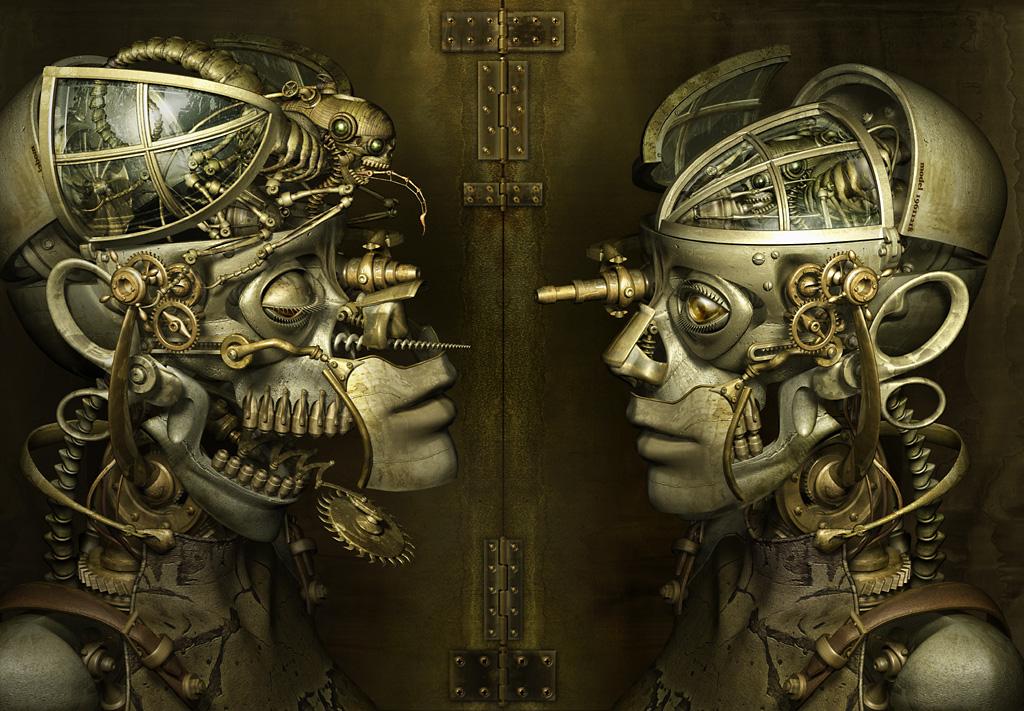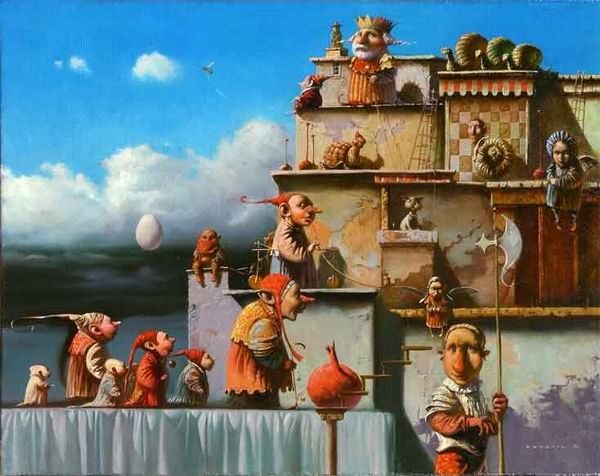
Magnus Carlsen: A Genius or Automaton?
Some of his colleague GMs say Carlsen doesn’t play chess actually. They say he is not a real chess player. Few players still do play chess “in contrast to Carlsen, who prefers to wait for his opponent to make a mistake rather than try to outplay him as real chess players do,” GM Alexey Dreev (source).
“That Carlsen isn’t capable of finding new ideas is a long-established commonplace,” GM Vladislav Tkachiev (WhyChess.)
GM Genna Sosonko rejected to write about Carlsen when approached by Whychess recently. He is of the view that there used to be living legends in chess while the current #1, Carlsen, a player who is a product of computerization, inspires no interest whatsoever for writing about him.
Wow, harsh statements about World chess #1!
Many of us may even find it offensive to the chess #1 and his fans. Well, we typically admire #1, no matter what domain they come from. They are held in high regard by the public, but we also tend to be uncritical of them in view of their “authoritiveness,” sort of blind submissiveness that doesn’t see any flaws, nor asks many questions about what and how they do.
We have to be fair to both sides, and hear their arguments. With that in mind, let’s try to see what’s going on here and what might lie behind those harsh words above. Let’s shed some light on the criticisms and negative views on Carlsen, expressed not only by GM Dreev and GM Tkachiev.
Digital revolution. Logic vs Magic
I’ll start with something we all are experiencing right now. We are living the era of science and technology. The progress has been wonderful. But there is a dark side. All kind of “smart” and “intelligent” devices are making more and more decisions for us. As a result, we risk losing ability to produce creative solutions by ourselves.
There is automation of activities to make our lives easier and that’s fine. But there is also automation of our cognitive processes. We risk deactivation of human modes of thinking that have brought us here to become what we are, a superior intelligent species in this tiny corner of the Universe, namely, creativity, imagination, fantasy, ambiguousness, intuitiveness, curiosity, self-inspiration, empathy.
None of these qualities, coming from the unconscious brain, can lowly machines possess and be programmed for (instructions to the machines as to what they should slavishly do, repeating it over and over again – thus they can’t be considered an intelligent breed! – may only come from the conscious, logical, and analytical brain).
The magical thinking (creativity, imagination, etc.) that we have developed over the course of evolution remains exclusively to us, superior humans; that’s why we must cherish them, nurse them, keep them all (and let computers and robots do only menial work for us).
So let’s take a look at Magnus Carlsen’s play and style in this broader context.
Human computer
Carlsen has formed and become the champion in the era of computers. No wonder then his playing style reminds the one of cheap-chip morons. Carlsen’s opponent in the 2013 and 2014 championship matches, GM Anand of India, said in an interview he couldn’t figure out Carlsen’s style. For him, playing Carlsen was like playing a human computer. “His approach resembles… I hesitate to say… computer.”
While his technique of play is effective – he is a high-scoring point machine – it’s not so effective at stirring creative imagination.
Do you feel a thrill when you play over his games? Probably not.
Chess as art
The role of chess art (if we may consider chess being art in part) should not be all about winning (at least to me![]() ). Its role should be to express the triumph of the human spirit over the mundane and the déjà-vu… Its role should be to carry beauty and ideas at the same time; to ignite and create; to inspire and stimulate our imagination.
). Its role should be to express the triumph of the human spirit over the mundane and the déjà-vu… Its role should be to carry beauty and ideas at the same time; to ignite and create; to inspire and stimulate our imagination.
Computers and computer-like thinking can in no way do that.
Now look at the choice of words Carlsen himself made in the press conference after the win against Gelfand, Zurich 2014, as he was commenting on the game, “logical move,” “natural move,” “computer-like move.”
Just a coincidence?
Inspiration and new ideas, or lack of
“Magnus doesn’t have ‘it’ when it comes to inspiration. He may hold the title for years to come, but while he does the chess world may very well remain cold and lifeless.” (Chris Wainscott on chess.com)
Not only Carlsen doesn’t inspire us, he himself doesn’t seem to get inspiration.
As GM Tkatchiev said above, Carlsen wasn’t capable of finding new ideas.
Here is Anand again. What surprised him most about Carlsen (during the 2013 Chennai match) was how he had changed so little. “I know how he plays. But I expected him to come out and try something different… Usually for a World Championship match, people work on something different… maybe something to surprise the opponent. Carlsen just stayed the same.”
Every act of creation is first of all an act of destruction. One must destroy familiar ways of perceiving and behaving to see, contemplate, and design anew. –Pablo Picasso
Do you see many brilliant ideas waged by Magnus over the board? Well, probably not.
What does Carlsen himself think of inspiration and new ideas?
“You can play good games and you can win, but flashes of true inspiration are very hard to come by. It feels like making a big scientific discovery in a way. It doesn’t happen very often, at least not with me.” Fair enough. (source here)
Now think of a true artist, or a genius, who is without inspiration and new constructive ideas. That simply cannot be true. Period.
The principle mark of genius is not perfection but originality, the opening of new frontiers.–Arthur Koestler
Risk
Among the elements that should be considered to describe the playing style of a chess player, risk is a major indication of it. By the way, risk is our intentional interaction with uncertainty through exposure to potentially harmful, but also rewarding situations by being creative and original.
In the recent years Carlsen has got used to winning in an unassuming manner, without taking the slightest risk. From a creative point, it is equal to suicide. Let’s give word to chess #1 again.
“I played solidly. And I am pretty happy with what I got. Very solid position. No weaknesses. As the game went on he started to drift a bit, I thought as long as there is no risk (all highlights in the article mine) I should try and win it.” (the Chennai post-match press conference).
Creativity takes courage, –Henri Matisse
Product of his time
We have seen how Carlsen’s play resembles one of automaton. It doesn’t change much and is lacking fresh ideas. No risk, no inspiration (in this view GM Dreev and Tkachiev’s words could be now seen from a different perspective).
But to be fair, Crlsen is the product of the time. A time that wants everything quantified. A time that has established the system that praises players for rating and results, and not for the beauty of their games. In such a system inventive and artistic effort is limited to a minimum. No imagination, no original creations. (If you dared to play courageously and creatively, your rating would soon plummet and less and less often you would see yourself be invited for tournaments).
The legendary GM Bronstein once said that chess has ceased to exist as a game, as a lively play. Chess has long been reduced to struggle for space. It seems that’s exactly what Carlsen has developed, a sense of how to take up and effectively use space on the chessboard for his men. Here is Bronstein, “the majority of chess players today know only how to set groups of pieces. They don’t think in a creative way any more. Groups of pieces fight for some square or sector of squares on the board.”
That way, chess, devoid of magic we used to see before (say in the games of the Magician from Riga or the Sorcerer’s apprentice Bronstein), is left to the machines that we foolishly praise.
So chess is lost to humanity. What human activity we have enjoyed up to now will be next victim?
The fundamental question here is, will human intellect and traditional way of thinking magic be able to free itself from automation? To be able to stay in control and use machines only as good servants, not our deciders.
Or we have already become part of the equation of doom?
